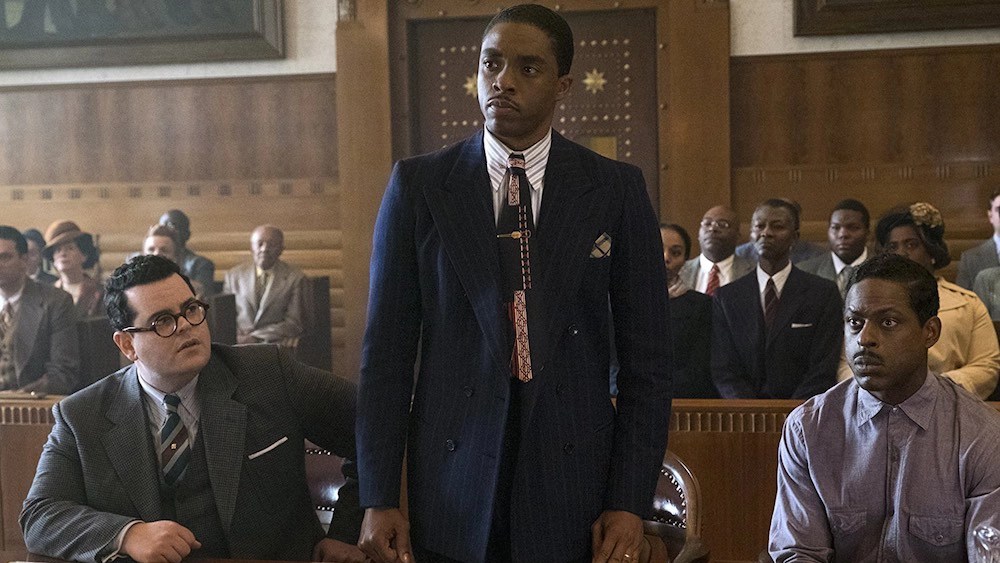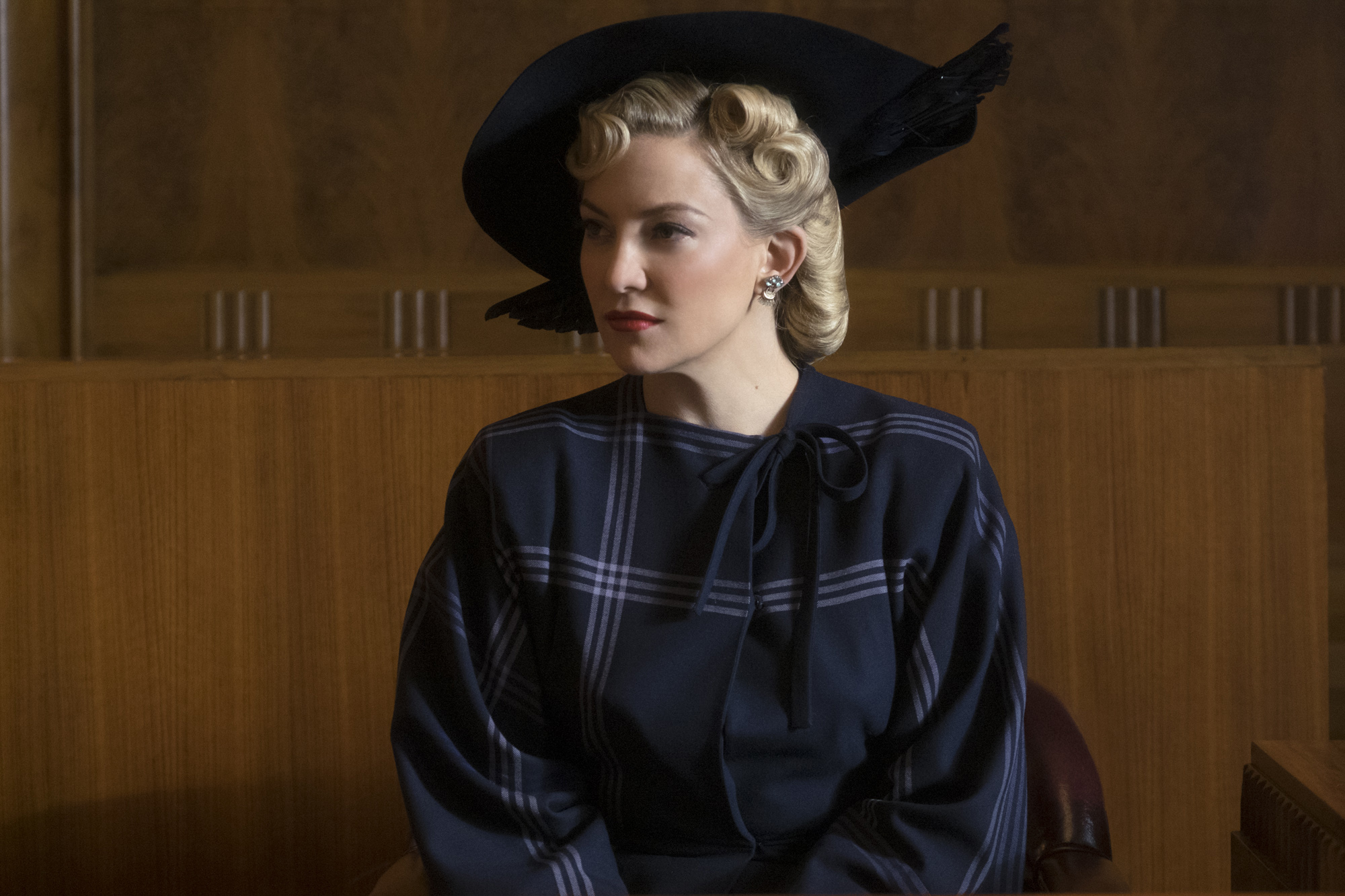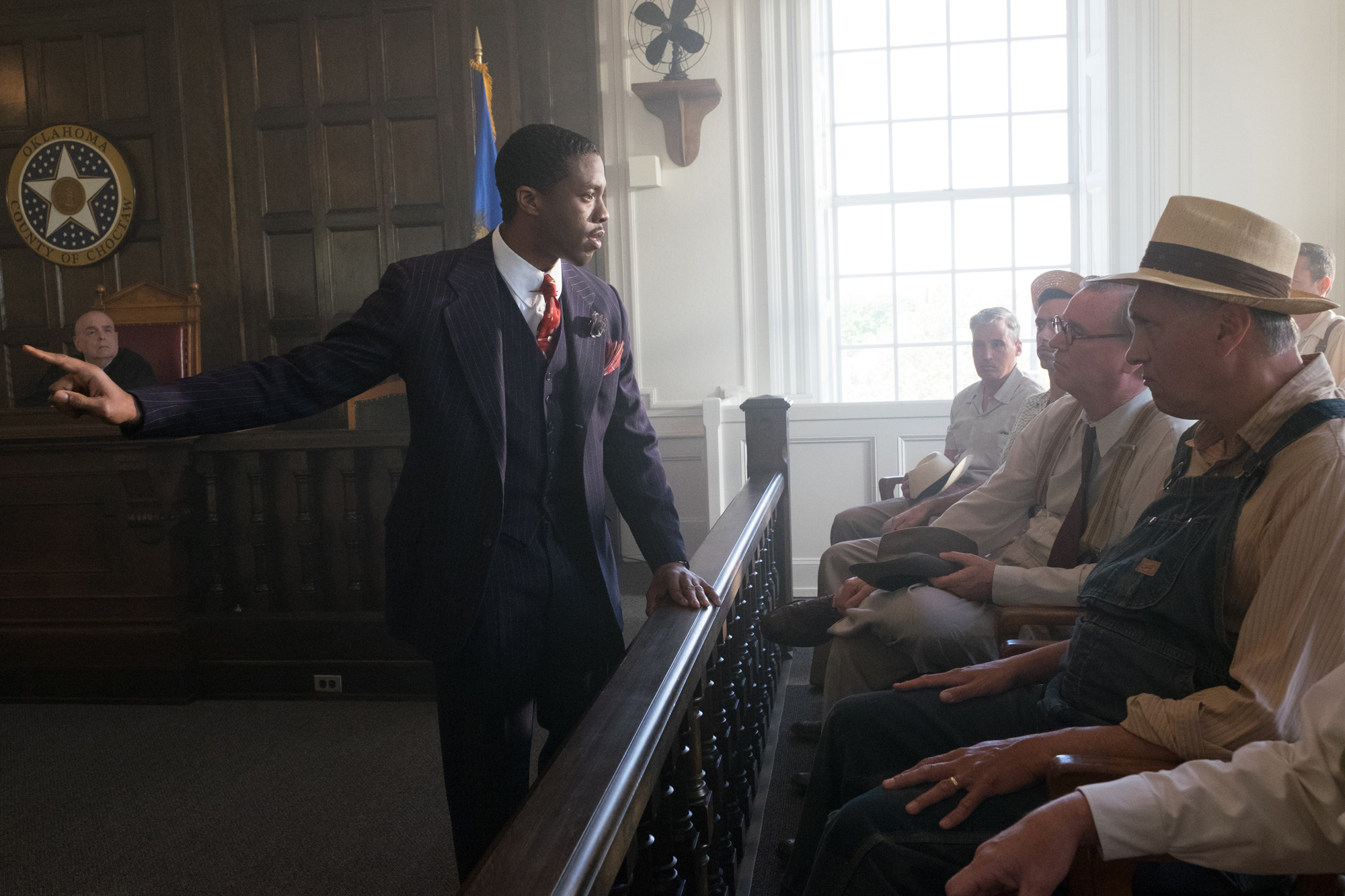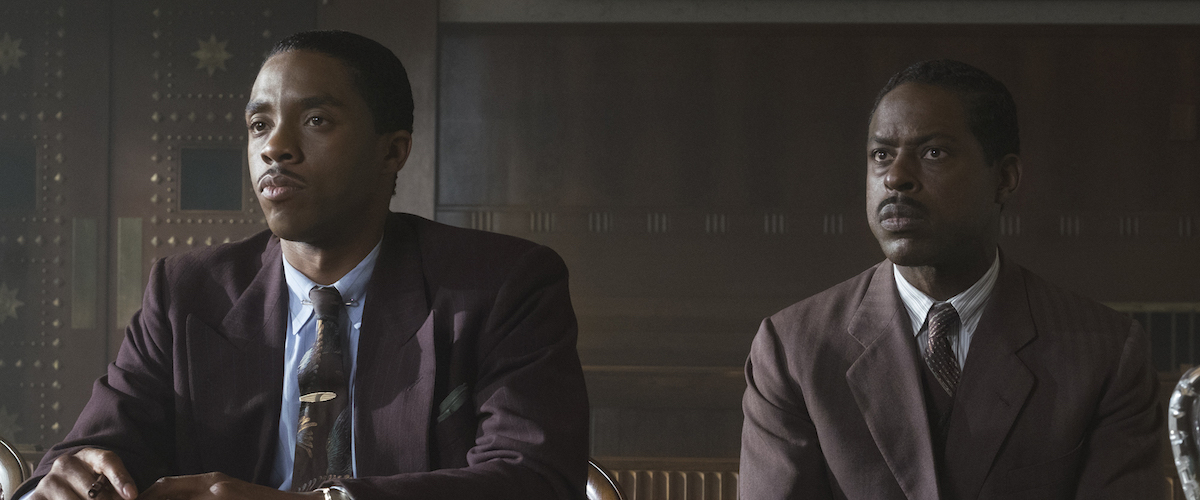‘Marshall’ is a legal thriller film that centers around Thurgood Marshall, an attorney for the National Association for the Advancement of Colored People. Thurgood is tasked with going to Bridgeport, Connecticut, in order to defend Joseph Spell, a black man, in a case of rape and attempted murder. Despite the severe allegations, defending Joseph is made all the more difficult because of a prejudiced judge. What recourse would Thurgood take now?
Directed by Reginald Hudlin, the 2017 film features the late Chadwick Boseman in the lead as Thurgood Marshall. Joining him is a stellar cast that includes Kate Hudson, Sterling K. Brown, Josh Gad, and James Cromwell. Set in 1941, ‘Marshall’ shows the stark reality of racism and institutional prejudice at the time. But is the story based on true historical events? Let’s dive in and find out!
Director Reginald Hudlin Highlights Forgotten Historical Case
Yes, ‘Marshall’ is based on a true story. Written by Michael and Jacob Koskoff, the film is based on one of the most important cases that defined the American Civil Rights Movement – the State of Connecticut vs. Joseph Spell. It is also one of the first major cases of Thurgood Marshall’s career, who went on to become the first African American Justice in the Supreme Court.

The trial of Joseph Spell – an African American chauffeur – was quite sensational at the time as he was accused of raping his employer, Eleanor Strubing, a white woman. While slavery has been abolished a long time ago, it is no secret that racist sentiments still existed and continue to do so. And it was because of these prejudiced beliefs that made it difficult for Thurgood Marshall to defend Joseph, as he was barred by the presiding judge from even speaking in the court on the ridiculous grounds that he had completed his education in New York and not Connecticut.
Despite this unprecedented hurdle, Marshall managed to continue with his defense with the help of his co-counsel, Sam Friedman. But while the real-life Thurgood Marshall may have faced the challenge of not being able to speak in court, how is the reel-life Marshall supposed to do the same? Especially because, at the end of the day, Chadwick Boseman was an actor starring in a feature film. “…Because this is the challenge. This was his challenge and this is my challenge, so I’m going to learn the most about this man by dealing with the challenges as the actor the same way he did as an attorney,” the actor said in an interview with Roger Ebert.
The actor added, “The question is, first: how do I as the actor play the lead of the movie when I can’t talk? And then second: how do I win this case from the sidelines?” Boseman also spoke about how it was specifically this aspect of the script, this handicap that Marshall had, which attracted him to take on the role as well. “It was an extraordinary moment for me because I thought about so many moments where black people have played in the background and white people who took the credit,” he continued.
“And I was like, that’s actually an interesting story to expose through Thurgood Marshall. So it became a beautiful film experience. It became ‘Here’s this guy who doesn’t know how to argue a criminal case and now I’m going to show him how to do it.’ That’s a beautiful film moment that you wouldn’t expect.” While there have been many pieces of media that have been created for the sole purpose of chronicling the American Civil Rights Movement, there are still many instances that remain unheard of by the general public.

Director Reginald Hudlin’s inclination to turn the case of Joseph Spell into a film stemmed from his desire to bring to light one such case that had almost been forgotten in the annals of history. “…We’re at this historical moment where the country’s literally tearing itself apart and it’s very easy for people to feel overwhelmed. I watch the news and I can’t take it. It feels like we’re losing something precious and we’re not going to get it back. But what this movie says is: we faced even bigger obstacles and we overcame them,” said the director.
In an interview with FilmIsNow Movie Bloopers & Extras, Boseman mentioned how the role itself was really important to him despite having been a part of several other biopics before it (‘Get On Up,’ ‘42’) because it was about a man who was so pivotal in moving the Civil Rights Movement forward. Boseman also went on to attribute Thurgood Marshall to a real-life superhero as he was in “many places at one time, dealing with justice across the country and saving the day.”
Though the case on which the film is based took place nearly 90 decades ago, the themes that it deals with continue to plague our society still. That is why a biographical film such as ‘Marshall’ is still relevant, especially today because of the message it sends out – that people, despite the color of their skin or their background, are equal in the eyes of the law and should be treated as such by their fellow men as well.

As director Reginald so eloquently puts it, “All we have to do is come together as allies and be smart and have a fidelity to the truth. All these characters came to the case with their own baggage, their own -isms but they believed in a fair version of our system that takes their finger off the scale and says, ‘but here’s the truth and it’s messy; it’s not clean but here’s what happened.’ When truth resonates like that it cuts through the nonsense.”
Read More: Best Biopics of All Time


You must be logged in to post a comment.